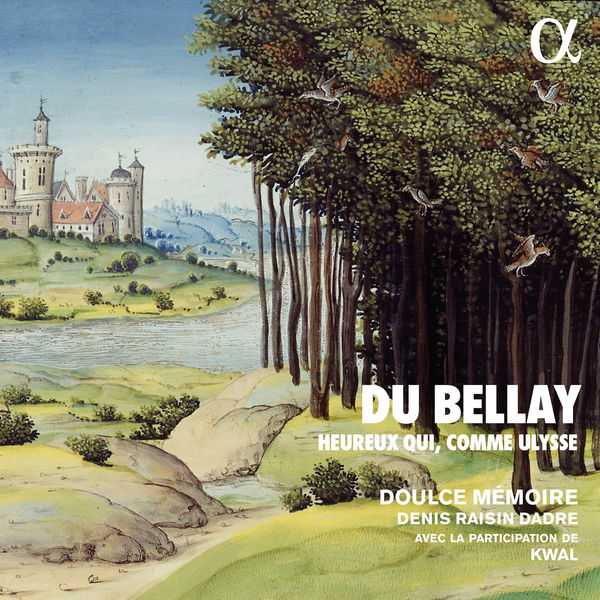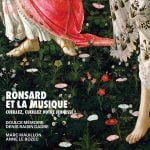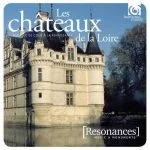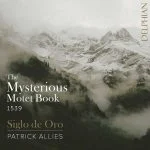

Composer: Jacob Arcadelt, Antoine de Bertrand, Jean de Castro, Nicolas Gombert, Clément Janequin, Orlando di Lassus
Performer: Doulce Mémoire, Denis Raisin Dadre, Kwal
Format: FLAC (tracks)
Label: Alpha
Catalogue: ALPHA870
Release: 2022
Size: 1.18 GB
Recovery: +3%
Scan: yes
01. Blanc: Qui prestera la parole
02. Kwal: Heureux qui, comme Ulysse
03. Arcadelt: Du temps que j’estois amoureux
04. Arcadelt: Du temps que j’estois amoureux (Arr. for Ensemble)
05. Lassus: La nuit froide et sombre
06. Lassus: O foible esprit
07. Blanc: On peut faindre par le cizeau
08. Gombert: Hors envyeux
09. Arcadelt: Si vous regardez, ma dame
10. Montfort, Chardavoine: Si vous regardez, ma dame / Bransles / Si vous regardez, ma dame
11. Arcadelt: En ce mois delicieux
12. Arcadelt: En ce moys delicieux (I) (Arr. for Ensemble)
13. Nicolas: En ce moys delicieux (II)
14. Verdonck: Seul et pensif
15. Kwal: La nuit m’est courte (I)
16. Castro: La nuit m’est courte
17. Verdonck: L’homme vertueux est riche
18. anon.: Pavane (instrumental)
19. Bertrand: Cet’ humeur vient de mon œil
20. anon.: Marcher d’un grave pas
21. Castro: Je te souhaite pour t’ebatre
22. Arcadelt: Si le bien qui au plus grand bien
23. Janequin: Qui voudra voir
24. Arcadelt: Je ne puis dissimuler
25. Arcadelt: Vieille plus vieille que le monde
Joachim Du Bellay (1522-1560) stormed onto the Parisian literary scene with the resounding avant-garde manifesto Défense et illustration de la langue française. Ronsard and Du Bellay are the great French poets of the sixteenth century, but while the former has been set to music hundreds of times, Du Bellay inspired only about thirty compositions.
Denis Raisin Dadre and his ensemble Doulce Mémoire celebrate the Angevin poet on the occasion of his 500th anniversary with works by the leading composers of the period, among them Arcadelt (who set nine chansons to his texts, including Je ne puis dissimuler a year before Du Bellay’s death), Lassus, Chardavoine and Verdonck. It was also established practice at the time to declaim poems accompanied by a musician who improvised on the lyre, an instrument and usage imported from Italy (recitare a la lira).
Denis Raisin Dadre has decided to pay tribute to these sixteenth-century “slammers” by asking a modern equivalent, Kwal, to “slam” some of Du Bellay’s sonnets, including the famous Heureux qui, comme Ulysse.



